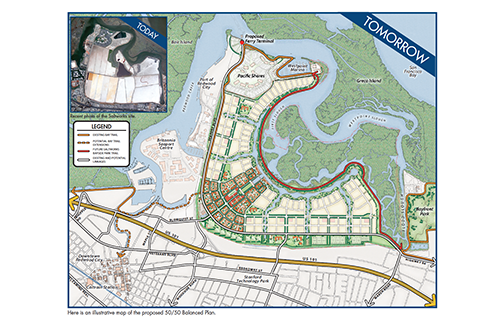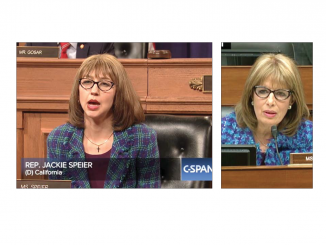
The possibility of ever putting 8,000 to 12,000 homes on the salt ponds east of Redwood City appeared to die today (Feb. 26) when the Biden administration’s Environmental Protection Agency declared the area is protected under the Clean Water Act.
The decision reversed the stance of the Trump administration, which argued the salt ponds weren’t protected. Without such protection, a housing developer would have faced fewer regulatory burdens in obtaining permission to build there.
Today, the EPA withdrew its appeal of a federal judge’s finding that the agency had mistakenly determined that the salt ponds weren’t part of the “waters of the United States.”
The history
Salt has been harvested from the ponds dating back to the Ohlone Indians and later the Spanish missionaries. Mission San Jose, established in 1797, produced enough salt to export quantities to Europe.
In the early 20th century, the ponds became a commercial salt production operation. However, the marsh circling the Bay attracted housing developers who built communities such as Redwood Shores and Foster City.
The salt ponds’ owner, Cargill Corp., decided in 2008 to build 8,000 to 12,000 homes on the salt ponds in the area north of Highway 101 and east of Seaport Boulevard in Redwood City. In the face of fierce opposition from environmental groups and local politicians such as Congresswoman Jackie Speier, Cargill dropped those plans in 2012.
In 2019, the EPA under the Trump administration determined that the salt ponds were not part of the “waters of the United States.”
That determination resulted in a lawsuit by California Attorney General Xavier Becerra and group of environmental organizations including Save the Bay and San Francisco Baykeeper.
In an October 2020, U.S. District Judge William Alsup ruled that the Trump EPA ignored its own regulations and misinterpreted relevant case law. The judge threw out the EPA’s determination and sent the case back to the agency to reconsider.
The EPA and Cargill appealed Alsup’s decision to the 9th U.S. Circuit Court of Appeals.
Today, the Biden EPA decided to drop the appeal and let Alsup’s ruling stand.
Sejal Choksi-Chugh, executive director of San Francisco Baykeeper, said in a statement today that “EPA’s decision to abandon the Trump administration’s nonsensical appeal is a victory for the Bay and a win for common sense. … The ponds are wet, they’re connected to the Bay, and therefore require Clean Water Act protection.”
Choksi-Chugh added, “The only thing more misguided than pretending that water is really land is to build on land that’s really water. This decision could save the Bay Area future heartache when climate change causes sea levels to rise and flood such low-lying areas and anything that could be built upon it.”
The dispute turned on whether the fact that the salt ponds were set off from the Bay itself by the development of a system of levees and dikes made them no longer part of the navigable waters of the Bay.
“The salt ponds here have not been dry and have had continuing connections to the Bay,” Judge Alsup wrote. Based on that, the EPA was wrong to have determined they were not part of the navigable waters of the Bay.
EPA’s withdrawal of the appeal may not resolve the matter; Cargill’s counsel said today in a statement, “we do not intend to withdraw our Notice of Appeal.” — Staff and wire reports




How do environmentalists sleep at night when they push things like this that choke the housing market and drive up rents. The effect these environmental rules have on the average person need to be considered.